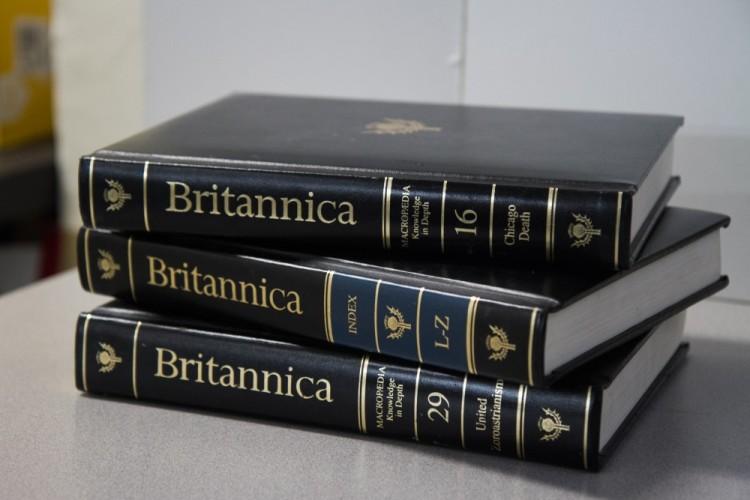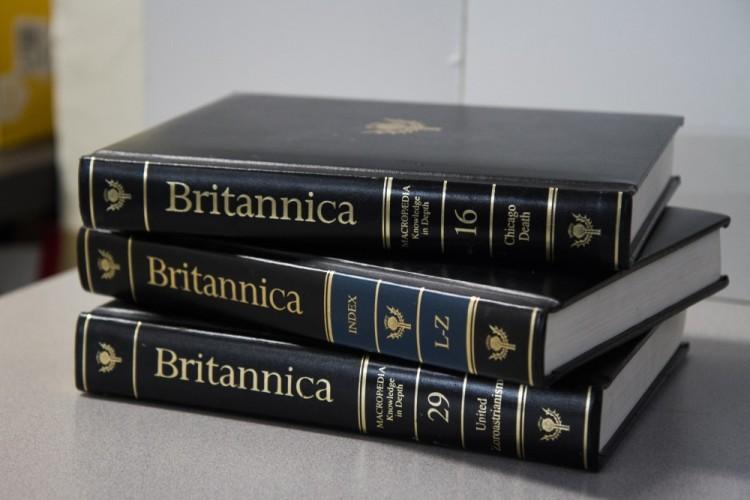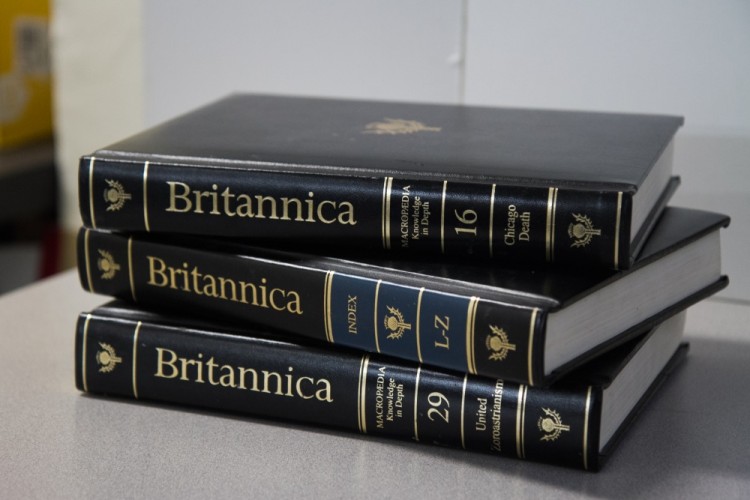CHICAGO—In another casualty of the digital age, this week Encyclopedia Britannica announced the end of its print editions.
Britannica was first published in 1768, and is the oldest English-language encyclopedia still in production. Now, the Chicago-based company says it will discontinue its multivolume printed reference library once the current inventory is gone.
The move has been in the works for some time. While Britannica was primarily a print publisher until the early 1980s, the company has done a lot to embrace digital publishing over the last few decades. Britannica launched the first Internet encyclopedia in 1994, and by 2006 the company saw more than half of its revenue coming from digital products.
Although it has enjoyed a long history on the printed page, Britannica says the shift to digital has become increasingly necessary. According to company President Jorge Cauz the core mission of the encyclopedia was never about a collection of books, but rather an aim to bring “reliable, up-to-date, and scholarly” knowledge to the general public.
In an interview with The Associated Press, Cauz explained that Wikipedia and Google weren’t to blame for the full switch to digital. The choice he said had more to do with the limits inherent in the print medium.
“By concentrating our efforts on our digital properties, we can continuously update our content and further expand the number of topics and the depth with which they are treated without the space constraints of the print set,” said Cauz in a statement. “In fact, today our digital database is much larger than what we can fit in the print set. And it is up to date because we can revise it within minutes anytime we need to, and we do it many times each day.”
To keep a broad range of information fresh and current, the company has long employed a large staff of full-time editors (from artists to engineers), and thousands of expert contributors (from heads of state to Nobel and Pulitzer prize winners). In 1933, Britannica became the first encyclopedia to continuously revise its content, but in the digital age, printed volumes simply couldn’t keep pace.
In over 240 years, Encyclopedia Britannica has only produced 15 editions. While the first edition was an easy to manage three-volume set, within less than a century it expanded to 20 volumes. The latest editions have grown to 32.
But there’s only so much room on the shelf, and over the years sacrifices have had to be made for space. Entries were shortened, and some topics were done away with altogether. In an increasingly mercurial and technologically based society, coverage of contemporary topics would quickly become dated, while cumbersome attempts to update stale entries would take at least a decade between editions.
In the online version, however, constraints of time and space are no longer a concern. Britannica still boasts a diverse and sizable editorial team, but says that its editors now “work on a constantly evolving database, with revisions and updates publishable online within minutes.” The new medium also allows for more subjects and expanded coverage, so content can be driven by editorial choice, rather than the limits of space bound by the printed page.
Other aspects of the encyclopedia’s entries have changed too, changes that Britannica says reflect the changing needs and expectations of modern users. In addition to more comprehensive and regularly refreshed articles, Britannica’s digital incarnation offers many features that print never could, such as links to supplementary materials, primary documents, and research notes. Other online features include full-text searching, hypertext links, multimedia content, and interaction with other users.
Britannica says, despite the change in appearance, its mission to bring knowledge to the general public remains, and will continue into the future.
“I believe that 200 years from now, this mission will continue to be vital and relevant and that the people of the future who are committed to it will use the best available technology to fulfill it,” said Cauz.







